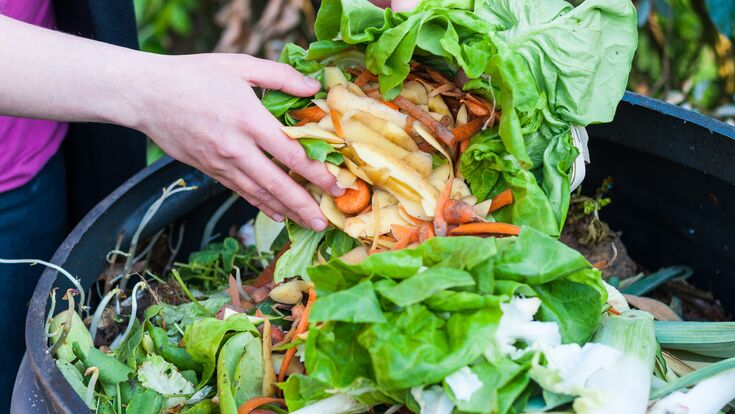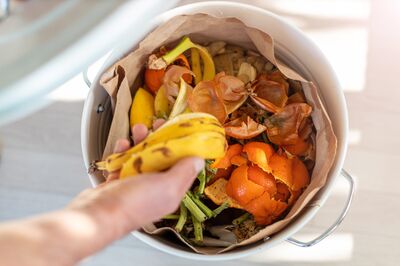Biowaste Recycling : Food waste recycling on top of UK businesses' green agenda

Between 20 and 30 percent of the general waste stream in the UK is biowaste. With the Environmental Bill that will come into force in 2023 the government wants to drastically reduce this share. The new legislation will introduce mandatory separate food and general waste collections across the UK, with the aim of eliminating food waste from landfill by 2030.
It seems businesses are already in line with this policy. A study of 200 UK businesses conducted by Keenan Recycling, suggests that companies are more concerned about recycling food waste, than they are plastic and cardboard, (19%) switching to electric vehicles, (16%) or decreasing use paper and print materials, (10%) when it comes to its green agenda. Almost half of all businesses have ‘recycling food waste’ at the top of their priorities to reduce their organisation’s carbon footprint. Furthermore ‘reducing food waste’ is coming in as the third biggest priority for businesses. The research also revealed that nearly half (48%) of companies were set to spend as much money on food waste recycling as it did recycling other waste materials (i.e. plastic, glass, cardboard.)
The 10 main business priorities to reduce carbon footprint:
- Recycling food waste (46%)
- Reducing use of plastic (35%)
- Reducing our food waste (33%)
- Recycling plastic and cardboard (19%)
- Using sustainable supplier (17%)
- Using electric vehicles (16%)
- Minimising water usage (14%)
- Sourcing local produce (14%)
- Planting trees to offset carbon (12%)
- Decreasing use of paper and print materials (10%)

The new legislation comes not too soon. From the 9.5 million tonnes of biowaste produced every year in the UK only 14% get recycled. The rest is landfilled with a small amount going to Waste-to-Energy. Mandatory separate collection seems essential to increase recycling rates. “Since 2016, any business that operates in Scotland and produces more than 5kg of food waste has a legal obligation to recycle by a registered waste carrier service,” says Grant Keenan, Managing Director at Keenan Recycling, adding that in order to be able to correctly treat the biowaste, the feedstock needs to be as clean as possible. Contaminants such as plastics, glass etc. can damage the equipment.
“We know first-hand the benefit an enforced recycling legislation can have with an increase of 15,000-tonne in food waste treated at anaerobic digestion plants across Scotland in the first few months alone - if only this was already in play in England!
“However, in its absence, to see that businesses are beginning to see not only the environmental but the possible financial benefit of recycling and placing it in prime priority position when thinking about sustainability is excellent news.”

